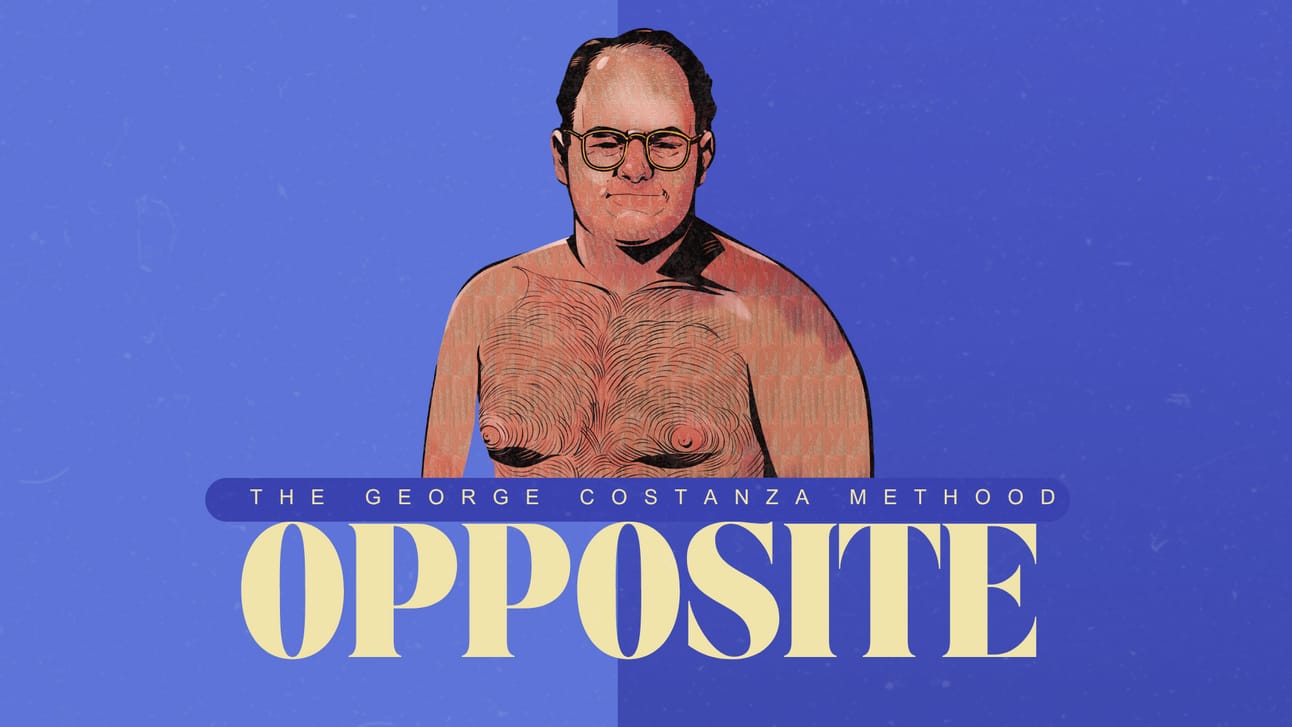
Listen now on Spotify and Apple Podcasts
👋 Hey dumdums,
When we encounter a big problem, our natural instinct is to seek out complex solutions. We assume that tough challenges require intricate answers, a belief that is deeply ingrained in us. From our education system to the way we're conditioned to think as professionals, we're taught from a young age to value "smart" decisions over dumb ones. The ultimate criticism isn't that something is wrong or flawed; it's that it's perceived as stupid.
Imagine you've just been handed the keys to a struggling retail clothing store. Sales are in the toilet and customers are bolting for the exit, muttering curses under their breath. Your first impulse might be to whip out every fancy business strategy in the book. Complete store makeover! Employee boot camp! New inventory system! Marketing blitz that will make Madison Avenue weep!
But what if the real solution is so simple it's almost embarrassing?
This scenario actually played out at a major retailer in the United States. For months, this store was hemorrhaging money and goodwill. Then, some bright spark of a new manager waltzes in and notices something so obvious it hurts: The checkout counters were tucked away in the back like they were in the witness protection program.
The geniuses who came up with this store layout probably thought they were being clever. "Let's make customers navigate a labyrinth of tempting products before they can escape!" But in this case, it backfired. Their customers, it turns out, weren't so keen to play "Find the Checkout."
So, what did this new manager do? She took those counters and plonked them right near the entrance. And wouldn't you know it, sales picked up fast. No fancy tech, no corporate restructuring, no million-dollar ad campaign - just a simple, dumb idea: "Let's put this thing where people can actually find it."
Why do we often overlook straightforward solutions in favor of complex ones?
Brain-Science B-Side
Your brain has a sneaky bias called the "complexity bias"—the tendency to believe that complex solutions are inherently better than simple ones. Psychology researchers found that when people are presented with simple and complex solutions to the same problem, they consistently choose the complex option, even when the simple one works better. This happens because complexity feels more sophisticated and makes us appear smarter to others.
But here's the twist: neuroscience research shows that when we experience "aha moments"—those sudden flashes of insight when simple solutions become clear—our brains actually light up with reward signals. Studies using brain imaging reveal that these elegant solution moments activate the same dopamine pathways as eating chocolate or winning money, creating what researchers call "cortical representational change."
The disconnect?
Simple solutions trigger our "this seems too easy" alarm, making us second-guess genuinely good ideas. Here's your mini-experiment: next time you're stuck on a problem, force yourself to write down the most obvious solution first, even if it feels "too simple." Research from Duke University shows that these insights often come when we stop grinding away and let our minds "simmer"—often producing better solutions than deliberate analysis.

Dumb Word of the Day: Sesquipedalian
Sesquipedalian (ses-kwuh-puh-DAYL-yuhn) — given to using unnecessarily long words.
This deliciously ironic word literally means "a foot and a half long," coined by the Roman poet Horace to mock writers who used "words a foot and a half long." The beautiful absurdity? Sesquipedalian is itself a sesquipedalian word! It's the perfect linguistic trap—you can't complain about people using overly complex vocabulary without sounding pretentious yourself.
Here's the kicker: research actually shows that using big words makes you appear less intelligent, not more. Yet amazingly, nearly 6 in 10 people admit to using words they don't even understand just to sound smart. Think of every manager who says "utilize" instead of "use," or that colleague who wants to "circle back" instead of just saying "talk later." They're being sesquipedalian, turning simple ideas into needlessly elaborate performances. It's the retail manager's checkout counter problem, but for language—making something simple unnecessarily complicated just to sound smart.
Use it in a sentence: "His presentation was so sesquipedalian that everyone left confused about what he actually wanted us to do."
The “What Would a 5-Year-Old Do?” Challenge
Pick one problem you've been overthinking this week.
Write down:
Your current "impressive" solution
What a five-year-old would do
Try the five-year-old version first
That's it. Sometimes the simplest idea is the smartest move.
🎤 YOUR TURN
Tell me about a time you overcomplicated something that had an embarrassingly simple solution. Or confess your worst "productivity theater" moment—those elaborate systems that made you feel organized but actually made everything worse.
Best story gets a virtual fist-bump and the satisfaction of making me snort-laugh at my desk.
Keep it beautifully dumb,
David
P.S. Your inner 5-year-old is reading this newsletter right now, rolling their eyes at all the times you chose the fancy solution over the obvious one. They're not mad, just disappointed.
Dumbify: Dumb Ideas, Delivered Weekly (You’re Welcome).





